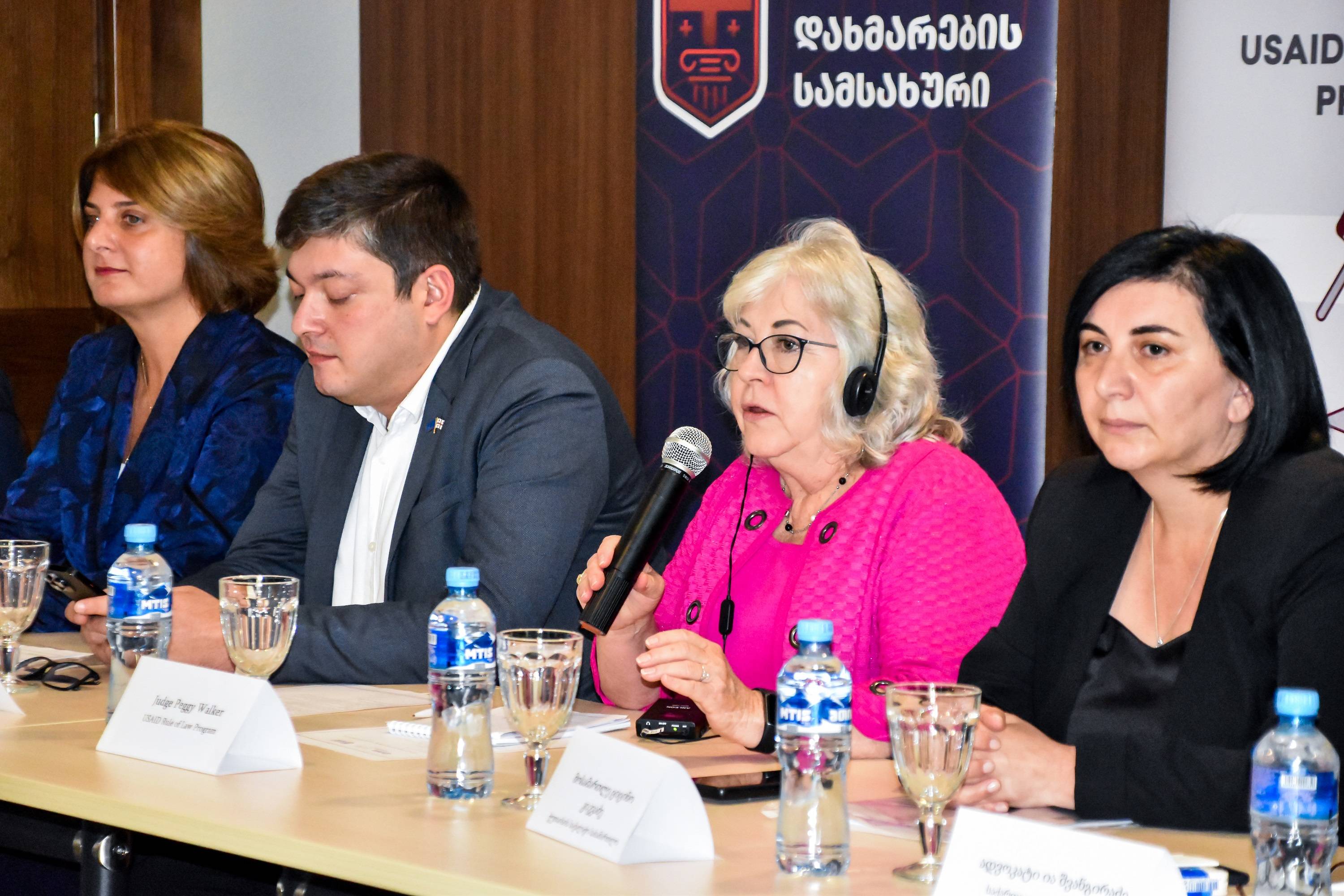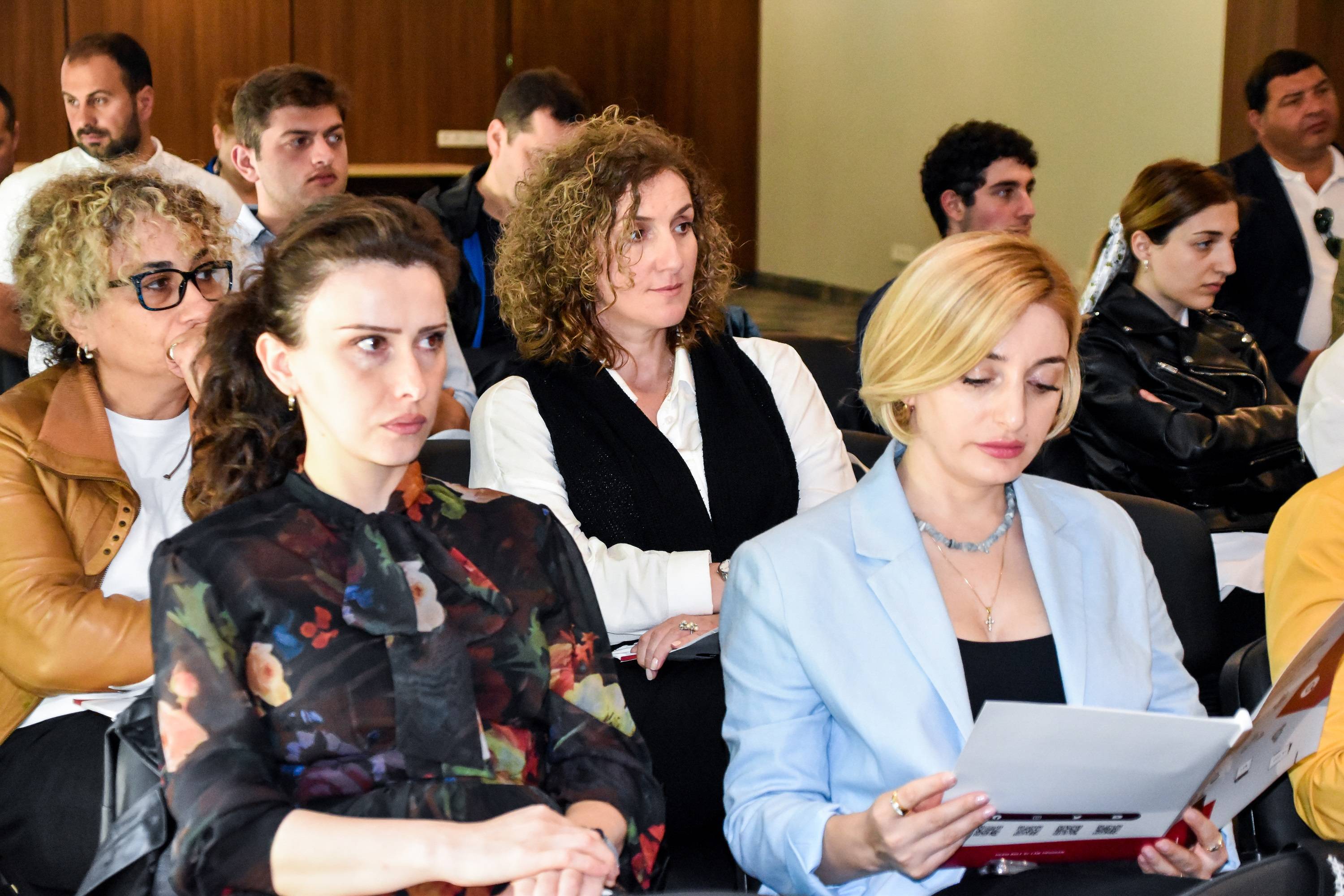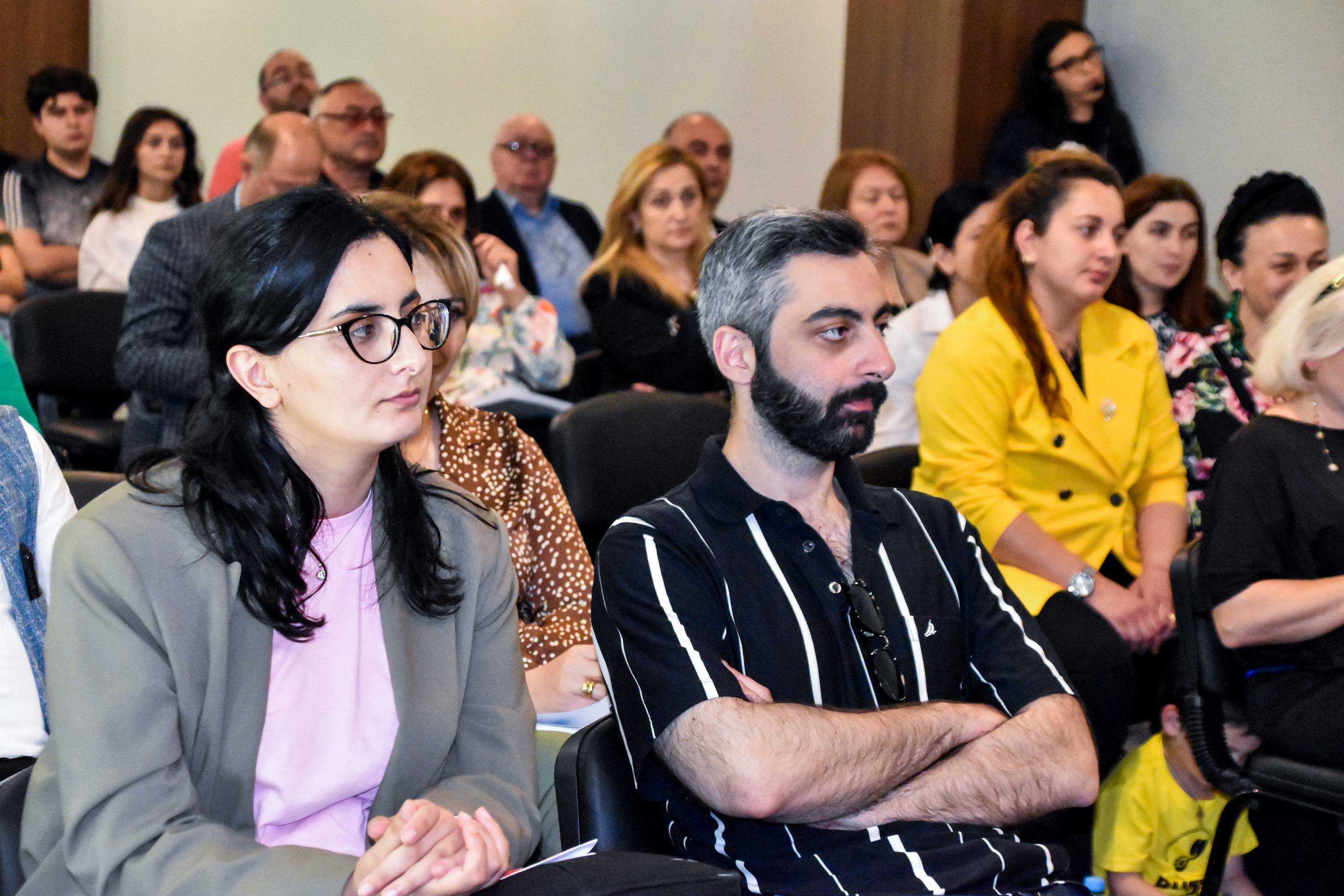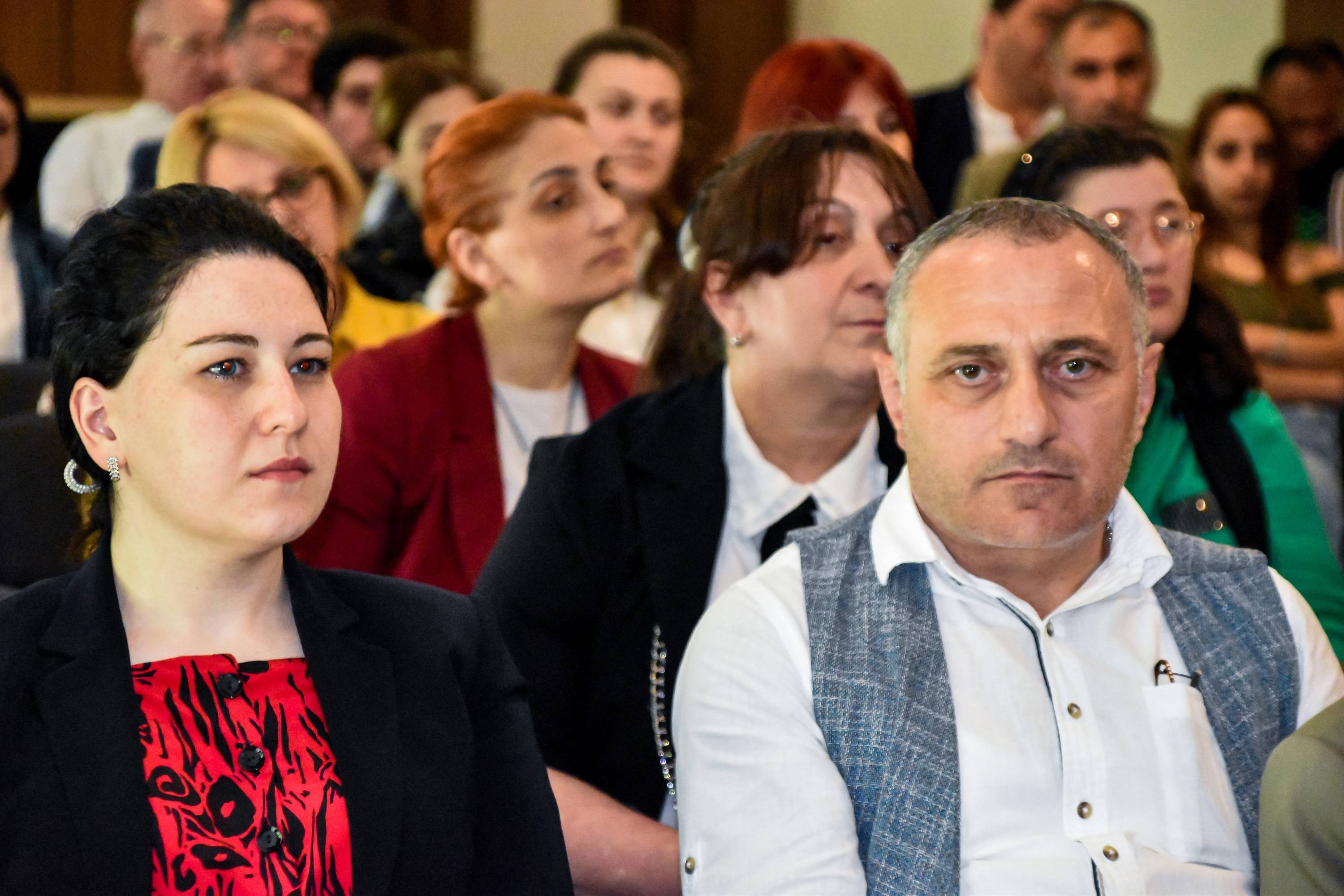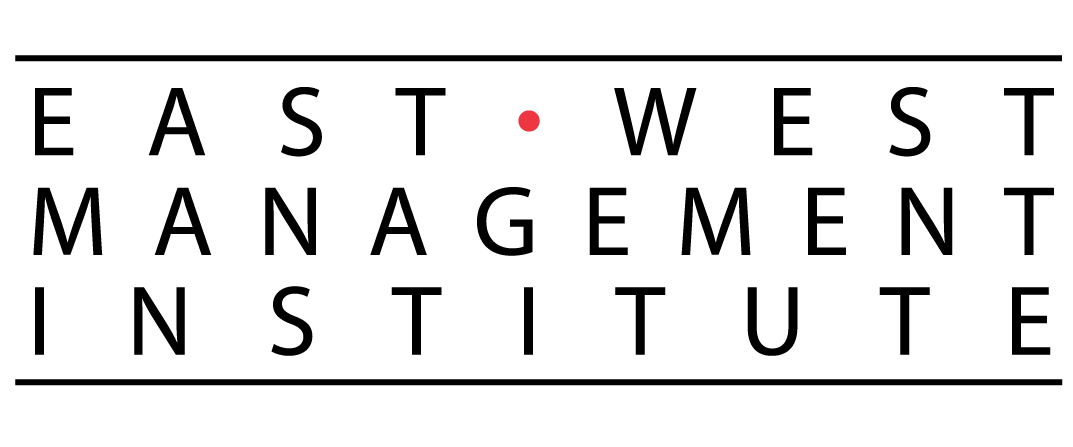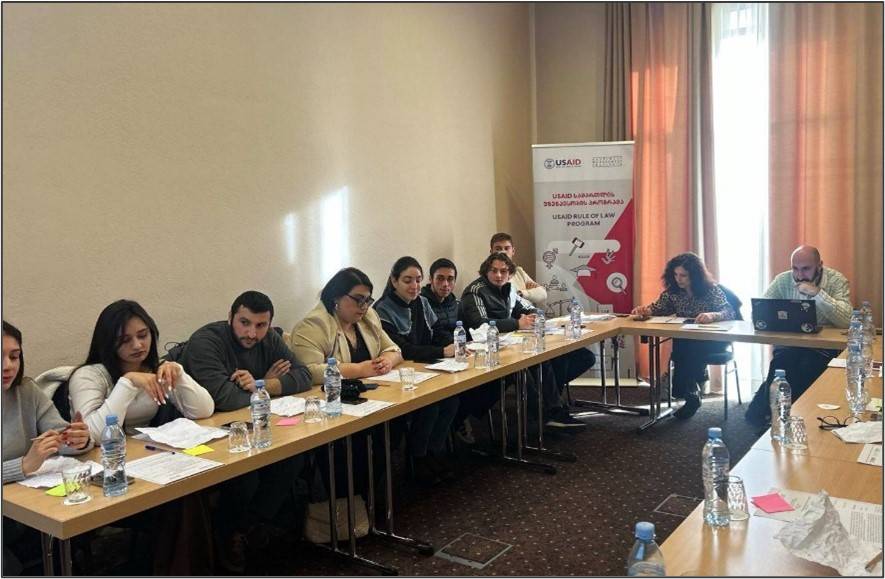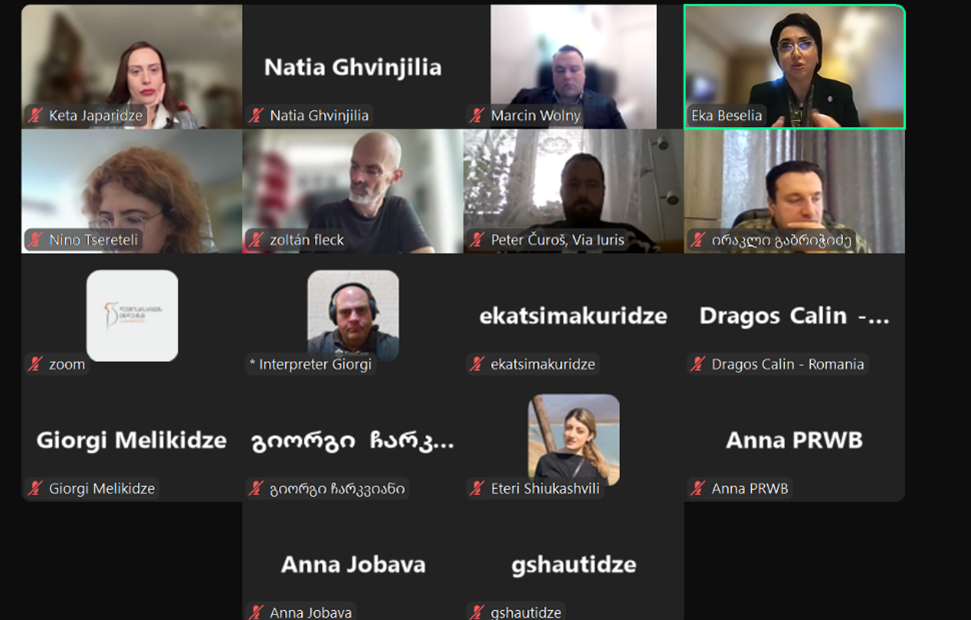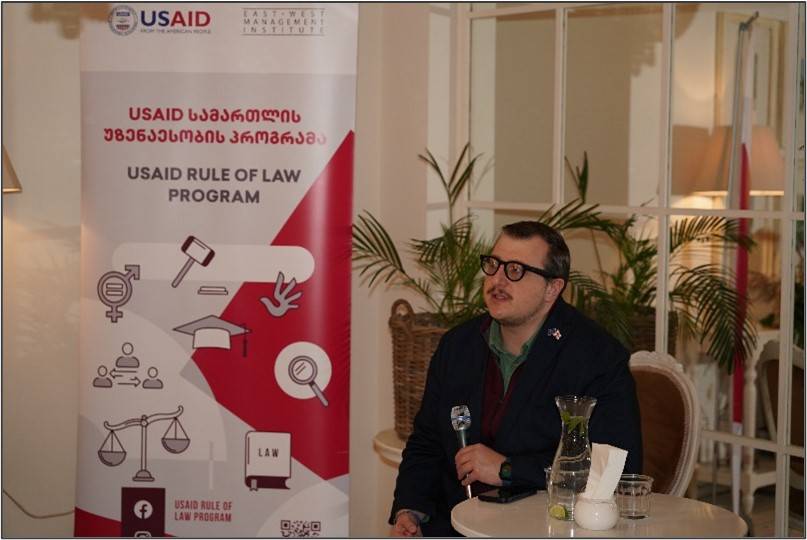Kutaisi Hub Sparks Dialogue on Child Rights in Georgia
The USAID Rule of Law Program’s Kutaisi Hub in partnership with the Legal Aid Service (LAS) organized a thought-provoking discussion on child rights involving over 50 participants, including two judges, lawyers, civil society representatives, and university students.
The primary focus of the discussion revolved around the child’s right to be heard in civil and administrative procedures, highlighting the insufficient procedural rules within the Georgian system. These rules play a pivotal role in enabling judges to take necessary actions to determine the best interests of the child.
The panel consisted of esteemed participants, namely Kutaisi City Court judge Tsitsino Kikvadze, USAID Rule of Law Program invited American judge Peggy Walker, Legal Aid Service lawyer Tamar Oboladze, Georgian Bar Association (GBA) lawyer, former judge Ia Shvangiradze, and the Head of Georgian Young Lowers’ Association Kutaisi branch, Darina Saldadze.
Participants shared insights on both local and international practices pertaining to child rights. One noteworthy example discussed during the event was the comprehensive approach adopted by the American system. In this approach, judges, together with the involved parties, establish a case action plan from the outset to determine the best interest of the child. The plan encompasses two key aspects: first, enabling the child to remain within the family; second, if the initial step proves unsuccessful, considering options such as permanent custody or open adoption. Such an approach ensures that the child's future is determined and resolved, minimizing uncertainty. In contrast, the current Georgian procedures only mandate a custody review every six months, which tends to be a formal process lacking meaningful impact on the child's future. This process often becomes distressing for the child, serving as a reminder of their parents' inability to provide for them adequately.
During the discussion, several challenges were brought to the forefront: limited skills and inadequate preparation of GBA members in effectively safeguarding child rights, excluding legal aid lawyers; insufficient consideration of the child's best interests within court procedures; ongoing efforts by the anti-trafficking agency to amend the Child Rights Code; and a lack of effective communication skills and relevant information gathering abilities among judges when dealing with children.
The discussion garnered significant interest among the audience and their active participation was commendable. This was the second professional meeting of its kind; the first, also supported by the USAID Rule of Law Program, took place in March 2023 and was dedicated to women’s rights.
